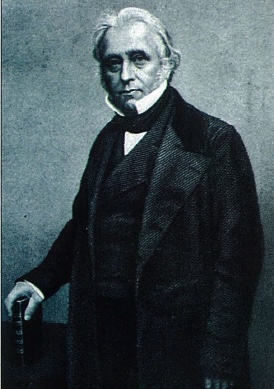Thomas Babington Macaulay, politician, essayist, poet and historian, was born in October of 1800. In 1834 he accepted a position on the Supreme Council of India, in charge of allocating funds for education. P.R. Dasgupta, an Aurobindo scholar, writes of him, “The present system of modern education in India has its beginning in the nineteenth century. Lord Macaulay could be said to have laid the foundation through his well-known “Minute on Indian Education” in February, 1835. His objective was not what we Indians would have desired from an education system. Although the system so laid down helped India to have an internationally compatible system of education, it will not be far from truth if it is stated that it failed to nurture the creative talent of India fully; nor could it tap the latent energies of the youth of this country for national development. As is well known, the objective of this education system was to produce a class of intermediaries between the rulers and the ruled. To envisage for the future educated class of a great and ancient country like India, the role of only interpreters between the ruling class and the masses might have been dictated by the imperial interests, and might have well served that purpose, but there is no doubt that it amounted to the stifling of the nation’s genius and future, and a negation of human values.” Macaulay’s 1835 Minute addressed the issue of funding for Sanskrit and Arabic studies. He argued that these studies were a waste of money, and the available funds would be better used to teach English and the European systems of philosophy, science, history, etc. The resulting change in education in India persists to this day. Below are excerpts from the “Minute on Indian Education.”
All parties seem to be agreed on one point, that the dialects commonly spoken among the natives of this part of India contain neither literary nor scientific information, and are, moreover, so poor and rude that, until they are enriched from some other quarter, it will not be easy to translate any valuable work into them. The intellectual improvement of the people can at present be effected only by means of some language not vernacular amongst them. What then shall that language be? One half of the Committee maintain that it should be the English. The other half strongly recommend the Arabic and Sanskrit. The whole question is, which language is the best worth knowing?
“I have no knowledge of either Sanskrit or Arabic. But I have read translations of the most celebrated Arabic and Sanskrit works. I have conversed both here and at home with men distinguished by their proficiency in the Eastern tongues. I have never found one among them who could deny that a single shelf of a good European library was worth the whole native literature of India and Arabia.
“The superiority of the Europeans becomes absolutely immeasurable. The question now before us is simply whether, when it is in our power to teach English, we shall teach languges in which, by universal confession, there are no books on any subject which deserve to be compared to our own; whether, when we can teach European science, we shall teach systems which, by universal confession, whenever they differ from those of Europe, differ for the worse; and whether, when we can patronize sound philosophy and true history, we shall countenance, at the public expense, medical doctrines which would disgrace an English stable hand, astronomy which would move laughter in girls at an English boarding school, and geography made up of seas of treacle and seas of butter.
“I would at once stop the printing of Arabic and Sanskrit books, I would abolish the Madrassa and the Sanskrit college at Calcutta. It is said that the Sanskrit and Arabic are the languages in which the sacred books of a hundred millions of people are written, and that they are, on that account, entitled to peculiar encouragement. Assuredly, to encourage the study of a literature admitted to be of small intrinsic value, only because that literature inculcates the most serious errors on the most important subjects, is a course hardly reconcilable with reason, with morality, or even with that very neutrality [of the government in matters of religion] which ought, as we all agree, to be sacredly preserved. [Are we obliged] to teach false history, false astronomy, false medicine, because we find them in company with a false religion? And while we act thus, can we reasonably and decently bribe men out of the revenues of the state [by subsidies to Sanskrit pupils] to waste their youth in learning how they are to purify themselves after touching an ass, or what text of the Vedas they are to repeat to expiate the crime of killing a goat?
“It is possible to make natives of this country thoroughly good English scholars, and that to this end our efforts ought to be directed. It is impossible for us, with our limited means, to attempt to educate the body of the people. We must at present do our best to form a class who may be interpreters between us and the millions whom we govern; a class of persons, Indian in blood and colour, but English in taste, in opinions, in morals, and in intellect. To that class we may leave it to refine the vernacular dialects of the country, to enrich those dialects with terms of science borrowed from the Western nomenclature, and to render them by degrees fit vehicles for conveying knowledge to the great mass of the population.”
For the full text, see: http://www.tc.umn.edu/~raley/research/english/macaulay.html


